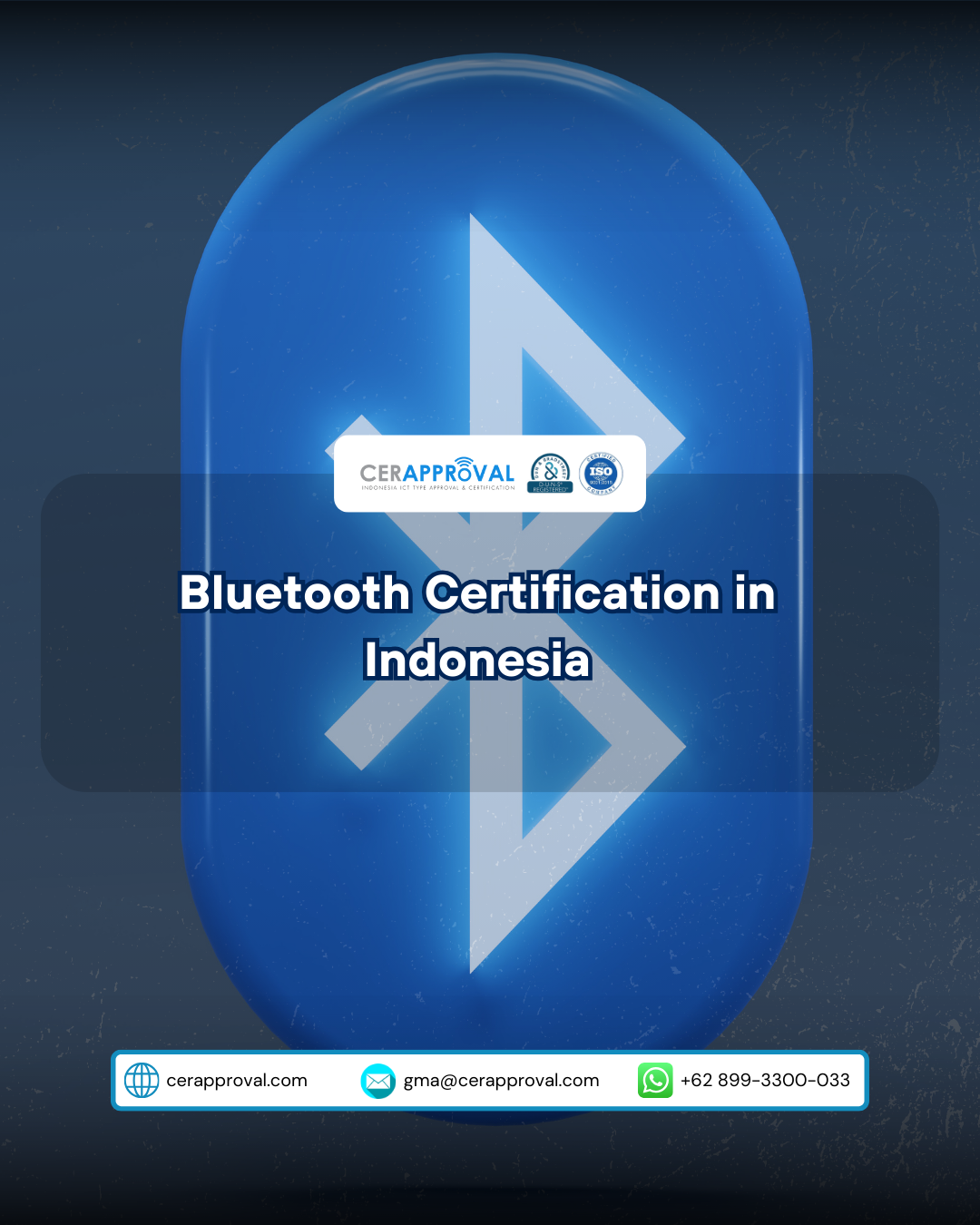Introduction
Bluetooth is one of the most widely adopted wireless communication technologies worldwide. From smartphones, laptops, and headphones to smart home devices and IoT solutions, Bluetooth plays a vital role in short-range connectivity. In Indonesia, the usage of radio frequency, including Bluetooth, is strictly regulated by the Ministry of Communication and Digital (Komdigi) to ensure safety, compliance, and spectrum efficiency.
This article explains the Bluetooth frequency allocation in Indonesia according to Komdigi regulations and how Cerapproval, as a certification agency, helps businesses comply with the standards.
1. Bluetooth Frequency Allocation in Indonesia
Bluetooth operates in the 2.4 GHz ISM band, which is globally recognized as an unlicensed frequency band. In Indonesia, the key technical requirements are as follows:
- Frequency range: 2.400 – 2.483.5 MHz
- Maximum output power (EIRP): ≤ 100 mW
- Modulation type: FHSS (Frequency Hopping Spread Spectrum) or equivalent according to IEEE 802.15.1
These rules aim to prevent harmful interference with other technologies operating in the same band, such as Wi-Fi and IoT devices.
2. Komdigi Regulations on Bluetooth Devices
In accordance with regulations established by the government regarding the Decree of the Minister of Communication and Digital Affairs No. 260 of 2024 governing Bluetooth devices related to the use of the radio frequency spectrum. Several important provisions:
- Devices must be tested and approved through Telecommunication Equipment Certification.
- Certification involves conformance testing at accredited laboratories.
- Certified devices must display a label or certification mark on the product or packaging.
3. Certification Process with Cerapproval
For manufacturers and importers, obtaining Bluetooth certification can be challenging. Cerapproval provides professional assistance to simplify the process, including:
- Reviewing technical documents and regulatory requirements.
- Coordinating testing with accredited laboratories.
- Managing submissions and obtaining official certificates from Komdigi.
4. Why Compliance Matters
Selling uncertified Bluetooth devices in Indonesia can lead to legal penalties and product withdrawal. Beyond regulatory compliance, certification ensures consumer trust and product reliability, which are crucial for brand reputation.
Conclusion
While Bluetooth operates on a license-free band, it is still regulated by Komdigi in Indonesia. Ensuring compliance through certification protects businesses from risks and strengthens market confidence. With Cerapproval’s expertise, companies can navigate the certification process efficiently and legally introduce their Bluetooth-enabled products into the Indonesian market.





